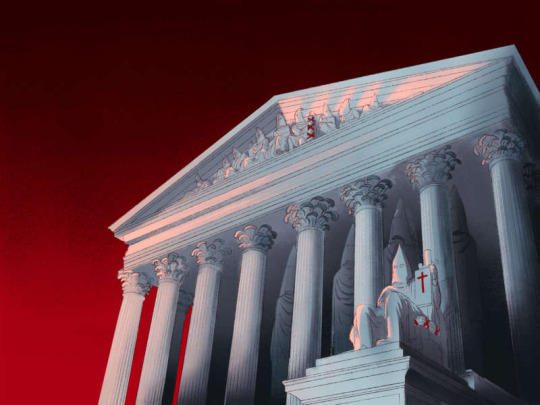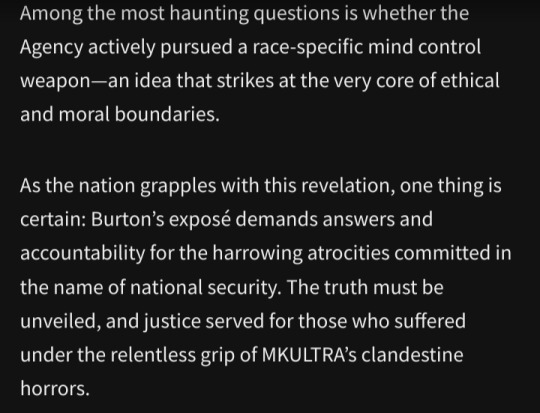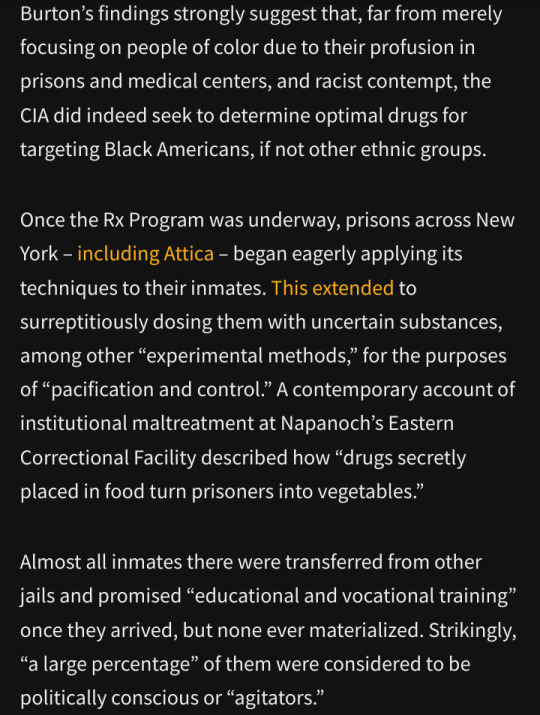#truthout
Text
On Wednesday, Senate Health, Education, Labor and Pensions (HELP) Chair Bernie Sanders (I-Vermont) and Rep. Pramila Jayapal (D-Washington) reintroduced a proposal to make higher education free at public schools for most Americans — and pay for it by taxing Wall Street.
The College for All Act of 2023 would massively change the higher education landscape in the U.S., taking a step toward Sanders’s long-standing goal of making public college free for all. It would make community college and public vocational schools tuition-free for all students, while making any public college and university free for students from single-parent households making less than $125,000 or couples making less than $250,000 — or, the vast majority of families in the U.S.
The bill would increase federal funding to make tuition free for most students at universities that serve non-white groups, such as Historically Black Colleges and Universities (HBCUs). It would also double the maximum award to Pell Grant recipients at public or nonprofit private colleges from $7,395 to $14,790.
If passed, the lawmakers say their bill would be the biggest expansion of access to higher education since 1965, when President Lyndon B. Johnson signed the Higher Education Act, a bill that would massively increase access to college in the ensuing decades. The proposal would not only increase college access, but also help to tackle the student debt crisis.
“Today, this country tells young people to get the best education they can, and then saddles them for decades with crushing student loan debt. To my mind, that does not make any sense whatsoever,” Sanders said. “In the 21st century, a free public education system that goes from kindergarten through high school is no longer good enough. The time is long overdue to make public colleges and universities tuition-free and debt-free for working families.”
Debt activists expressed support for the bill. “This is the only real solution to the student debt crisis: eliminate tuition and debt by fully funding public colleges and universities,” the Debt Collective wrote on Wednesday. “It’s time for your member of Congress to put up or shut up. Solve the root cause and eliminate tuition and debt.”
These initiatives would be paid for by several new taxes on Wall Street, found in a separate bill reintroduced by Sanders and Rep. Barbara Lee (D-California) on Wednesday. The Tax on Wall Street Speculation would enact a 0.5% tax on stock trades, a 0.1% tax on bonds and a 0.005% tax on trades on derivatives and other types of assets.
The tax would primarily affect the most frequent, and often the wealthiest, traders and would be less than a typical fee for pension management for working class investors, the lawmakers say. It would raise up to $220 billion in the first year of enactment, and over $2.4 trillion over a decade. The proposal has the support of dozens of progressive organizations as well as a large swath of economists.
“Let us never forget: Back in 2008, middle class taxpayers bailed out Wall Street speculators whose greed, recklessness and illegal behavior caused millions of Americans to lose their jobs, homes, life savings, and ability to send their kids to college,” said Sanders. “Now that giant financial institutions are back to making record-breaking profits while millions of Americans struggle to pay rent and feed their families, it is Wall Street’s turn to rebuild the middle class by paying a modest financial transactions tax.”
#us politics#news#truthout#sen. bernie sanders#progressives#progressivism#Democrats#senate health education labor and pensions committee#College for All Act of 2023#tax Wall Street#tax the rich#tax the 1%#tax the wealthy#college for all#student debt#student loan debt#tuition-free college#Historically Black Colleges and Universities#pell grants#Higher Education Act#Rep. Barbara Lee#rep. pramila jayapal#2023
466 notes
·
View notes
Text

How will the now homeless children endure the harsh conditions during the coming winter months as the torrential rains flood the streets of Gaza, the temperature starts to drop and illnesses become more rampant?
Read More: https://thefreethoughtproject.com/foreign-affairs/us-and-israel-ensure-palestinians-will-spend-christmas-in-living-hell
13 notes
·
View notes
Text
48 notes
·
View notes
Text
Sa'ed Atshan in Truthout.
With Israel’s genocidal violence continuing in Gaza, statistics of Palestinian casualties espoused by Western states, the press and even humanitarian organizations often disaggregate the data to cite numbers of women and children killed or injured. Subsequently, the lack of specification of male victims then often conjures images of Hamas militants. The possibility of a Palestinian male civilian becomes increasingly incomprehensible — and the humanity of Palestinian men writ large is therefore called into question.
2 notes
·
View notes
Link
By Leslie Thatcher, Truthout | Interview
Retired congressional staffer Mike Lofgren illuminates the shadowy influencers behind US politics in his incriminating new book, The Deep State. Explore in detail the involvement of Wall Street, Silicon Valley and the military-industrial complex in the decisions that will shape the future of the United States.
In The Deep State, author Mike Lofgren, whose 2011 commentary, “Goodbye to All That: Reflections of a GOP Operative Who Left the Cult,” remains the most-read article at Truthout.org, connects the dots between apparently disparate aspects of our current dystopia. “The deep state,” argues Lofgren is “the red thread” linking the “ideological syndrome” of McMansions; DC’s culture of careerist strivers; the financialization, deindustrialization and ultimate mutation of the US economy into “a casino with a tilted wheel”; the burgeoning of government secrecy even as individual privacy has been demolished; the consistency and persistence of unpopular policies regardless of which party wins elections; militarized foreign policy, “defense” and “security” establishments that thrive on failure and enjoy essentially unlimited funding whatever nostrums about the national debt and the necessity for austerity are being peddled for every other function of government; the prevalence of incompetence and ineptitude in government response to crises; unequal justice, including impunity for the wealthy and corporations, a corrupt Supreme Court and a strikingly punitive criminal legal system for ordinary people; legislative gridlock; perpetual war; political extremism and other ruinous epiphenomena.
Lofgren agreed to speak with retired Truthout editor Leslie Thatcher about his new book on January 27. The following interview has been edited for length and clarity.
Leslie Thatcher: Thanks so much, Mike, for talking with Truthout. First off, what do you want readers to know about your new book? Why should they read it?
Mike Lofgren: I think they should read it because we get a lot of pseudo-information from corporate media that focuses very intently on the horse race between the two parties to the exclusion of more fundamental issues. Meanwhile, regardless of who is elected, government policy regarding issues like economic regulation or national security doesn’t change very much. I wasn’t totally satisfied that my first book, The Party Is Over: How Republicans Went Crazy, Democrats Became Useless, and the Middle Class Got Shafted, answered the question, “What is it that happened to the US in the last 30 to 40 years such that both parties seem to enact the same policies on big things like militarism, Wall Street, or trade?” While there are considerable differences between the parties on cultural and identity issues, there is very littledifference in the big money issues, which is what a certain class of people who run the country are really interested in and that is what I try to explain.
You describe the “deep state” as the iceberg beneath the visible tip of the official US government “that is theoretically controllable via elections.” How does it function and what are its main components?
It’s a hybrid association of elements of government and parts of top-level finance and industry effectively able to govern the US without reference to the consent of the governed. Its nodes are the national security agencies of government, Treasury, the FISA [Foreign Intelligence Surveillance Act] court (whose dealings are so mysterious not even most members of Congress know what the court is doing).
Mike Lofgren. (Photo: Alisa Lofgren)Most congresspeople just vote according to what their party leadership tells them. Membership in the deep state in Congress boils down to the leadership and a handful of Defense and Intelligence Committee members. The private part of the deep state is the military-industrial complex Eisenhower warned about in 1961. There is also Wall Street and its symbiotic relationship with the Treasury and its regulatory agencies, like the SEC [Security and Exchange Commission]. People like Hank Paulson, who worked for [George W.] Bush, or Tim Geithner, who worked for Obama, are essentially interchangeable: Their worldview is much the same despite being of different political parties.
And then, of course, you have Silicon Valley – necessary for the technology which totally enables the NSA [National Security Agency] (which informants have told me couldn’t do its job without that technology). Silicon Valley is also significant as an enormous center of new wealth. You also see their self-glorifying statements about being innovative disruptors. They certainly are disrupting the economy. There is little evidence that technology will do anything in a macroeconomic sense other than concentrating wealth even further so that we’re left with CEOs on top and everyone else in the gig economy, like contractors for Uber.
How did you personally become aware of the deep state and what is the explanatory power of its existence for understanding current affairs?
I became aware that there were forces at work in the period between 9/11 and the invasion of Iraq that were bigger than the government and were operating on their own compass heading. We have a supposedly free press, but when you saw people like Phil Donahue and Ashley Banfield fired or demoted for being critical of invasion, you have to wonder. I’m pretty sure nobody in the White House picked up the phone and asked somebody at NBC to fire those folks, but the NBC executives were sufficiently conditioned to perform a service to the government by firing those folks and creating the propaganda for the war.
In the correspondence leading up to this interview, you mentioned “developments in the past six months that have surprised even me, and not in a good way.” Can you briefly outline what these are and their pertinence to The Deep State‘s premise?
I should correct that: They’ve surprised me in a mixed way. Certainly, six months ago I would not have imagined Donald Trump had as much staying power as he’s demonstrated. Trump in many ways represents the culmination of the deep state. He’s a plutocrat who’s used the laws, such as business bankruptcy procedures, for his own gain and yet in a way he is frightening people in the deep state because he is so far out, that he’s upsetting their business model. The standard model is for billionaires to dictate the candidates’ positions on free trade, austerity etc. On the upside: He is scaring the daylights out of members of the deep state. On the downside: He’s moving away from the current model of corporate oligarchy with a façade of free elections. Instead, he’s using all the populist themes developed by the Republican Party in the past to keep their base happy, but he’s actually making promises to act on them and moving towards out-and-out fascism.
On the other hand, you have the [Bernie] Sanders campaign also scaring the daylights out of Democrats. He doesn’t have to go to David Geffen’s house or to Wall Street with his hat in his hand or fundraise among the glitterati. The last time I looked, his average donation was reported as less than $30. That upsets the whole notion of fundraising described by a New York Times report that half of all political donations came from just 158 families. Unfortunately, that’s the business model we’ve got post Citizens United. The Democrat pooh-bahs are clearly upset and Michael Bloomberg has said he would jump into the race only if Sanders won in the Democratic primaries: that tells me who his friend is and who his enemy is.
Obama appeared to have a similar fundraising model, but it was clear he was bought off in summer 2008 when he voted in favor of the FISA Amendments Act [a bill to indemnify the telecommunications companies over participation in illegal surveillance] that he previously had said he would filibuster. By then he had already taken on John Brennan as a foreign policy adviser. The extraordinary loyalty and indulgence Obama has shown Brennan was demonstrated in his waiting until it was politically possible to get Brennan appointed CIA director, after which he then promptly embarrassed Obama with the scandal of spying on the Senate Intelligence Committee as they were writing a report on CIA torture. Although he made all kinds of bombastic statements about expecting an apology from the committee chair, Sen. Dianne Feinstein, Brennan ended up apologizing instead to Senator Feinstein. Yet Obama sticks by him.
You trace the transformation of Washington, DC, and the explosion of the deep state to the 1970s, the Powell Memo and the explosion of tax-exempt foundations and its origins to the secret development of the A-bomb. A recent National Review article uses the term, “Government of, by, and for Special Interests,” and ascribes that to progressive politics and the New Deal. Are these views reconcilable?
Well, their view is certainly not my view. Enough people know that something is wrong, even if they can’t put their finger on exactly what it is or how it works, so the editors at the National Review have had to craft a counternarrative to muddy the waters; that’s all it is. For crying out loud, William Buckley Jr. came out of the CIA; I wouldn’t be surprised if he were part of Operation Mockingbird. Time-Life and other media outlets were on the payroll of the CIA during the 1950s. Their role was to reflect the CIA’s point of view. Buckley, after graduating from Yale, a favorite recruitment center for CIA, went into the CIA, but only for two years. Why? [CIA director Allen] Dulles would have gravitated to him because he was a Yale man and because his father was rich. It seems very possible that Dulles, or some other CIA executive, told Buckley he could do more for the cause by creating a conservative front group to push the CIA’s Cold War line and to denigrate the isolationist posture of conservatives like Sen. Robert Taft.
One of the inflection points you mention in the development of the deep state was the fall of the Berlin Wall. How did “the end of history” connect to the present dystopia?
Instinctively, you would have thought the end of the Cold War meant we could demobilize and become a normal country again, but apparently the Cold War had gone on so long and created so many institutions and so much infrastructure with no other purpose than the creation of new threats. The powers that be essentially directed the same Cold War state into the post-Cold War world. What I saw from my perch in Congress was that defense procurement continued exactly as before. They continued to buy expensive weapon systems designed to fight the Soviet Union.
I also think there was a psychological angle: Once we had defeated the Soviet Union and there was no alternative system to compete with, we could unleash unencumbered laissez-faire policies, what Naomi Klein calls the shock doctrine.
And you’ve seen where that’s led in Hungary. People deprived of any reasonable alternative have opted for fascism, just as they did in the 1930s.
I think you saw the same thing to an even greater extent in Russia. After the 1990s orgy of asset stripping, the Russian people were so disgusted they accepted a strongman like Putin who could at least keep the oligarchs from challenging the state.
In your book and elsewhere, you refer to the historical precedents similar to the conjuncture in the United States you describe in The Deep State – the French Third Republic, the ancient régime, the Hapsburgs, the Romanovs, ancient Rome, the USSR. You have emphasized that it is most important to consider how the United States arrived at its specific present circumstances, but is there one particular historical instance you would consider most salient?
Not really: History does not repeat itself. These are simply analogies. But a good analogy that is also relatively recent and deals with another state with an overdeveloped military-industrial complex is that of the USSR. There, in spite of all the propaganda organs, people simply gave up believing in the system. The development of US demographics – and particularly the new study of excess middle-aged white mortality – primarily due to alcoholism, drug abuse and suicide – which heightens the USSR analogy.
How does the deep state survive and even thrive in spite of its obvious failures from the war on drugs to the “war on terror,” from economic to political and social justice?
Well, although it doesn’t do much to help the res publica or the economy as a whole, it does help certain people. This circumstance creates a kind of perverse Darwinism in the short and medium term, so thatharmful traits are the ones that are selected for. And most people simply don’t look at the long-term results of their actions, but mirror the typical corporate executive whose timeline is the next quarter’s results and how they will impact the price of the stocks he owns.
What is the position of finance in the deep state? What does it mean to “fight for an open economic system?”
A macro explanation of the trade deals of the last 25 years – NAFTA, CAFTA etc. and now the TPP [Trans-Pacific Partnership] – is to forget about tariff schedules and what textiles cost. These agreements are a bargain between the United States and other countries whereby the US gives privileged access to US markets in exchange for submission on foreign and economic policy. The powers that be are perfectly happy to destroy the economic seed corn in the USA in exchange for temporary dominance abroad. They’re willing to sacrifice Detroit for the UAE [United Arab Emirates].
As a congressional staffer, I presume you interacted regularly with people you would now consider operatives of the deep state. What can you tell us about them as people? What motivates them? What immunizes them so thoroughly from democratic concerns?
I think it’s hard to improve on Upton Sinclair’s dictum, “It is difficult to get a man to understand something, when his salary depends on his not understanding it.” I think they’re all about the logic that if it pays for their kids’ cornflakes and their scholarship fund, they will do it without their conscience bothering them too much.
So you don’t see them as malevolent?
Oh no, it’s much more banal than that.
Like Hannah Arendt on Eichmann?
Exactly, the banality of evil.
You mention the outsourcing of congressional staffing to ALEC [American Legislative Exchange Council] post-Gingrich in the book. Let’s take one concrete instance of US legislation – the 342-page USA Patriot Act of 2001, initially introduced by the Bush administration less than a week after September 11. Can you explain a little how the deep state would have been involved in its drafting and enactment and how it continues to serve the deep state’s – rather than Americans’ – interests? Also, what were your own thoughts at that time?
We can assume that all those provisions that didn’t quite get into all the crime and intelligence bills introduced earlier just sat on a shelf somewhere in the Justice Department and were dusted off. The Patriot Act was drafted by the government in an executive agency. Now what we have 15 years later is pretty much ALEC-template bills in statehouses – and even on Capitol Hill, legislative drafts originate with the tech industry or K Street so congressional staffers don’t have to worry their pretty little heads about drafting legislation.
You have elsewhere described the inequality of the US criminal legal system and the flat-out “corruption” of the Roberts court. Would your proposals to abolish corporate personhood and get money out of politics be adequate to remedy these abuses?
No single nostrum will be a miraculous panacea. But getting money out of politics is the precondition for anything else, including abolishing corporate personhood, enforcing anti-trust law and reforming health care. You have to align politicians’ incentives with the public interest rather than the interests of political donors.
Your second recommendation for downsizing or dismantling the deep state is to “sensibly redeploy and downsize the military and intelligence complex.” Andrew Bacevich – whom you cite extensively in your book –recently argued that there is no effective civilian control of the Pentagon. How then can we mobilize its downsizing, let alone the reallocation of resources to domestic infrastructure?
Congress doesn’t really attempt to exercise control. Getting money out of politics is also the first step in exercising civilian control of the military, because otherwise the donor base in the military-industrial complex has too much influence on policy.
With the deep state in control, have our elected government organs become purely ceremonial or do elections still make a difference?
There is a symbiotic relationship between the deep state and surface democracy. And the type of person who holds office does matter on the margins. Individual decisions do make a difference. The incentive structures for all concerned tend to be shared in a certain fashion because of careerist best interests. I’m not pointing to some massive conspiracy. All of this is going on in the light of day. Everyone knows who the Koch brothers are, General Dynamics etc. It’s just that most people do not see how it all works as a system and how we’ve been conditioned to look at it.
You advocate reform of US immigration policy …
This is impossible to effect at present … I’m a little different from most people I know in that I am appalled by what Trump says, but I also do not agree with unlimited immigration. Corporations love H-1B visas. Importing temporary labor is analogous to hiring strikebreakers during the coal strikes 100 years ago. Unlimited supply of labor undermines unions and wages. This is not to condemn the people seeking the jobs, just as the strikebreakers 100 years ago were desperate to support their families, but the H-1B visa system has become perverse – a form of corporate-sponsored human trafficking.
But when the US has, by Washington Consensus programs and trade treaties, destroyed livelihoods in neighboring countries or, by its militarized foreign policy and/or support for rapacious dictatorships, destroyed physical security for populations in targeted countries, don’t we have some responsibility toward those so displaced?
Oh, it’s our fault to a significant degree. Ever since 1954 and the overthrow of Arbenz in Guatemala, we’ve been destabilizing Latin America. Of course, their population wants to come here. I argue for a different foreign policy, but we are where we are and the problem started decades ago. You can’t ask a worker in Toledo or Detroit or Flint to make sacrifices for the greater good of humanity when people in Palo Alto and Wall Street are not willing to give up anything.
With – as you note – the United States living off its principal and saddled with a deeply entrenched, incompetent and unaccountable management, how can we respond to a true existential crisis such as anthropogenic climate disruption?
It’s difficult to do anything that matters, especially with respect to a perceived longer-term problem, because we’ve adopted the corporate model for government as [Gov.] Rick Snyder did in Michigan. People are paid to look to the short term. Campaigns that are financed by rich donors tend to condition politicians to think short term.
You’ve been very careful to distinguish the deep state from an active, conscious conspiracy, but is it possible or likely in your view that some of its operatives have been involved in, for lack of a better word, plots to dismantle democracy?
They wouldn’t put it that way. They think they’re legitimately working on political issues. But how it impacts the public is another matter. What the governor of Michigan did was a conspiracy against democracy. He needed to appoint emergency managers with autocratic powers because he needed to undo municipal government and carry out his pro-corporate agenda. His emergency manager plan was rejected in a public referendum, so the Republican-controlled legislature attached the proposal as a rider to an appropriations bill. Therefore it was no longer subject to referendum. Rick Snyder and his cronies are hamstringing the ability of local governments to respond to democratic concerns and consciously doing so in order to pay for the tax cuts they gave to corporations. It was a conscious effort to undo democracy in Michigan, and it ended up poisoning children. What happened was nothing more than racketeering, in my judgment.
You periodically excoriate the US public in the book for failures of good citizenship, but you finish by suggesting that if we “disenthrall ourselves,” our ability to live sensibly and peacefully in the world as it is will ensue. How do you suggest those already disenthralled – in which I would include most Truthout readers – proceed?
4 notes
·
View notes
Text
Within disability rights organizations, the presence of board members and corporate partners who have contributed to and profited from militarism can act as an obstacle to having intersectional discussions and actions around militarism and ableism. A central example is Mitsubishi, a group of Japanese multinational companies that also has headquarters in the U.S., which frequently appears as a sponsor or partners with various disability organizations in the U.S. In 1991, the Mitsubishi Electric America Foundation (MEAF) was established with a $15 million endowment from Mitsubishi Electric Corporation and the Mitsubishi Electric U.S. group companies and provided grants to multiple disability programs in the U.S. However, Mitsubishi is well-known for its engagement in militarism in collaboration with Japanese colonialism and imperialism: It has contributed to militarized violence across the globe.
#Disability#Ableism#CSR#Corporate social responsibility#Disability justice#Disability rights#Truthout#Mitsubishi#America#Japan#War#NPIC#NGOs#Theory#Non profit industrial complex#I kept all the links in from the original#I just made them longer and more descriptive#To read
0 notes
Text

abolish the courts
founded on safe-guarding chattel slavery in the US colony, the supreme court and it’s membership are not just.
#truthout#photo credit Ayo Walker#The Supreme Court Won’t Save Us — It Was Founded to Defend White Supremacy#Claudia Garcia-Rojas
0 notes
Text
In case you haven’t seen the truthout interview about my new book. The interviewer even made me sound smart and like I have my shit together!
103 notes
·
View notes
Text
“Stop Internet Censorship” Master List
The following is a master list for all of the major Internet Censorship and Surveillance Bills between 2022 to 2023, with the most major bills that are currently active posted below. They will each link to the Tumblr posts that I have made in the past related to them, with all of the relevant information associated.
This was made because I feel people need to get a sense for just how interconnected they really are, how much Congress and third parties are trying to desperately gain full control and access to our information and silencing anything they don’t want to see and hear, and having a centralized hub of information for them will make it easier for people to find them.
The Major Bills:
EARN IT Act: 2022 version of EARN IT Act
2023 version of EARN IT Act (No text yet, but it’s pretending to be about preventing child abuse online this time)
Enigma2Me Post on EARN IT Act
fullhalalalchemist Post on EARN IT
Condemnation of the EARN IT Act 2020 Coalition Letter
STOP EARN IT Act LINKTREE
Engadget: EARN IT Act reintroduced for the Third Time
------
Kids Online Safety Act: Current Draft of 2023 KOSA bill
Enigma2Me Post on Kids Online Safety Act
STOP KOSA LinkTree
------
RESTRICT Act: Read Bill Here.
Enigma2Me Post On RESTRICT Act
LoganGalbraith’s Post on RESTRICT Act
Truthout Article 4/02/2023: Restrict Act Critics Call the Far-Reaching “TikTok Ban” Bill a “Patriot Act 2.0”
------
STOP CSAM Act:
Electronic Frontier Foundation: Take Action on STOP CSAM/EARN IT
TechDirt Post Against STOP CSAM Act
------
So if you’ve seen the above, you’re probably asking: What can we do about it?
1) Spread the Word online!
Twitter Hashtags
For Earn It: #EARNITAct, #STOPTheEARNITAct, #NoEarnItAct
For KOSA: #KOSA, #KidsOnlineSafetyAct, STOPKOSA
For RESTRICTAct: #RESTRICTAct, #STOPRESTRICTAct
2) PLEASE call your Senators.
Find your 2 senators numbers here. Fax them, email them. Tell them they MUST oppose this bill. Calmly make it clear to them that if they support this bill, then you will vote for someone else who doesn’t go along with this blatant act of authoritarian intent.
3) CONTACT any major human rights and cybersecurity related organizations and let them know about this bill. Get this out to any local news groups that you can.
The following Google Doc contains a list of every major organization we could think of to contact, and will be updated as we find more allies in the fight against censorship and surveillance.
ANTI-CENSORSHIP MASTER LIST
Also Contact the organizations on these 2020 letters to get them to publicly speak out against the EARN IT Act like they did back then.
But for those who want to have official organizations to work with (and who usually have petitions except TechDirt), the following usually are up to date on info:
Electronic Frontier Foundation
Fight For the Future
Techdirt
#RESTRICT Act#EARN IT Act#Stop Kids Online Safety Act#stop internet censorship#stop restrict act#stop earn it act#FUCK BLUMENTHAL#fuck surveillance#fuck censorship
601 notes
·
View notes
Text
By Annie Norman
The public learned last fall of one particularly controversial element of United States Postmaster General Louis DeJoy’s 10-year plan for the U.S. Postal Service that would be rolling out soon. Essentially, the function of sorting and delivering mail would be consolidated into regional centers, leaving empty former sorting space in the back of post offices. No layoffs were announced.
At first glance, this sounds innocuous, but seasoned postal observers suspect that with less activity happening at smaller or rural post offices, they become vulnerable to a reduction in hours or closure. This leads to the kind of job losses that initially present as don’t worry, we’ll relocate you to the regional center but are experienced by postal workers as if I don’t commute two hours there and back each day or more, I lose my job.
In response, The Save the Post Office Coalition, which I coordinate, wrote to the Secretary of the USPS Board of Governors to ensure the board was made aware of emails from 160,000 postal customers across the country urging them to stop the disastrous elements of DeJoy’s plan before it’s too late.
Among the several thousands of personalized messages, we highlighted a handful in our note:
“The USPS provides a service to the public. It was never intended to be a profit-making business. I’m disappointed & ashamed at where politics seem to be taking us.”
— David B. (veteran) Seattle, Washington.
“As a former United States Postal Service employee and as someone who regularly uses the [USPS], I ask you to do something about DeJoy, who continues to degrade everything about the postal service — especially the service part of it.”
— Kristin F. in Cottonwood, Indiana.
“It is important for seniors like me to be able to count on a dependable means of getting medications without having a further drain on our resources.”
— Peter L. in Los Angeles, California.
“I believe that a well supported and functioning post office is a hallmark of a healthy, advanced nation. Stop DeJoy’s undemocratic plan now before it’s too late.”
— Janet M. in Downers Grove, Illinois.
“We senior citizens depend on USPS. Please help keep it viable.”
—Joanne L. in Akron, Ohio.
“Our postal service should be about serving us rather than serving businesses that give it money.”
— Douglas L. in Rio Rancho, New Mexico.
We have yet to hear a response or acknowledgement that the messages from the public were received, and DeJoy continues to make it clear that he doesn’t want anyone asking questions about his 10-year plan.
On the same day that USPS leadership received our coalition’s messages, the Postal Regulatory Commission issued a public inquiry order to DeJoy asking that USPS provide details on the sorting and delivery changes under his plan. In the order, the Commission said it “notes that stakeholders have expressed concerns regarding a lack of a forum to explore the impacts of these proposed changes.”
DeJoy responded with an objection to the Commission’s inquiry. On May 17, DeJoy delivered congressional testimony for the first time in nearly two years at a hearing of the House Oversight Subcommittee on Government Operations. Rep. Summer Lee asked him why USPS is objecting. In his response, DeJoy was openly hostile toward the postal regulator, accusing them of actively participating “in the destruction of [USPS].”
Just last month, DeJoy sat down with the press for a 90-minute interview where he once again doubled down with an adversarial attitude toward postal regulators who seek details for the public on his 10-year plan, calling the Commission’s inquiry “nonsense,” saying, “We don’t need to be babysat.”
On May 22, DeJoy delivered the keynote address at the 2023 National Postal Forum where he spoke at length touting his efforts to implement “dramatic changes” and increase the pace of his 10-year plan. The postmaster general told the audience that “dramatic changes must be done at a pace, and with a tenacity that is rarely seen.” However, these changes are a mystery to many, and for a public institution, this mystery is dangerous.
If the past is any guide, the effects of potential post office closings and reduced hours will be devastating, particularly to rural and Indigenous communities. The Save the Post Office Coalition organized a petition to the Postal Regulatory Commission and the USPS Office of Inspector General urging them to stop DeJoy’s “dramatic changes” and demand public input, and so far has received over 131,000 signatures from the public who regularly use the postal service.
The bottom line is that the public has a right to more transparency and input in the decision-making process at a public institution. This requires engagement with said public — which DeJoy is actively resisting. When you put a rich, white, private-sector executive who isn’t used to public accountability and cooperation in charge of a treasured public institution, such a clash might be inevitable. It’s plain DeJoy doesn’t have the temperament for public service.
Communities across the nation want dramatic change at the post office too, but that dramatic change is not to be secretive or a surprise; it must be a shift toward protecting and expanding the public footprint and services available at the post office to meet new needs and change with the times. The People’s Postal Agenda outlines a framework for an expanded USPS that includes things like postal banking, expanded nonbank financial services like bill payment and ATMs, WiFi in parking lots, and public electric vehicle charging.
We still remember former President Donald Trump’s plan to privatize the post office, right before he put his thumb on the scale to have his donor DeJoy appointed as postmaster general. We also remember DeJoy’s role in sowing public fear and uncertainty in the vote-by-mail process by slowing down the mail and then sending out mailers to voters that meeting their state’s deadline would not ensure their vote would arrive in time to be counted, causing him to be sued by the NAACP and Public Citizen, as well as secretaries of state.
There is nothing to suggest that DeJoy has abandoned the privatization vision of the people who got him the job. So it’s our job as citizens to make absolutely sure any upcoming “dramatic changes” to the post office don’t shrink and privatize the institution but protect and expand it for generations to come.
#us politics#news#truthout#2023#republicans#donald trump#conservatives#louis dejoy#Annie Norman#op eds#united states postal service#Save the Post Office Coalition#USPS Board of Governors#Postal Regulatory Commission#House Oversight Subcommittee on Government Operations#us house of representatives#Rep. Summer Lee#2023 National Postal Forum#People’s Postal Agenda#vote by mail#mail in ballots#mail in voting
48 notes
·
View notes
Text

[Genocide Joe] Biden: 'I Am a Zionist'
From 2021, but worth a read, from Truthout:
Christian Zionism must be challenged as a powerful threat to a larger progressive agenda. Because Christian Zionism is predicated on Christian salvation coinciding with the end of the world and annihilation of non-Christians, Christian Zionism is at its core anti-Muslim and antisemitic.
— Jonathan Brenneman & Aidan Orly | Truthout | May 20, 2021
#christian nationalism#genocide#christofascism#evangelicals#far right#biden/trump 2024#genocide joe#fascism#palestine#apartheid#israel#biden#trump#us politics#islamophobia#transphobes#homophobia#antisemitism#anti abortion#zealots#2023
79 notes
·
View notes
Text
Kit Klarenberg reporting on a new far-reaching investigation on the CIA's twisted MK Ultra program and its experiments on people of color in the United States.


Answers and accountability is something we'll never get under the Capitalist system, because the Capitalist Class cannot allow any precedent set that allows for holding members of the Capitalist Class accountable for any kind of actions they take, regardless of the harm caused. And in this case, an unprecedented amount of harm was done to Left movements within the communities of people of color in the US as the CIA attempted to use mind control methods to suppress communities of color from organizing radical political organizations.


How sick do you have to be to use political prisoners to experiment with mind control methods? Our Wall Street sponsored Government has NO ethical or moral boundaries they aren't willing to violate to retain their power and control.




Our Capitalist Elites biggest fear is organized resistance to Capitalist control and Revolutionary Socialist movements. By labeling followers of anti-Capitalist organizations and ideologies as mentally ill, our government used this as a Medical excuse to experiment on, harm and suppress Anti-Capitalist groups and communities of color, ravaging those movements and their ability to affect policy as they had begun to do in the 1960's.


"The darkness of MKULTRA lingers still, calling for urgent answers and transparency. America’s Black community deserves nothing less than the full extent of these operations exposed; culprits held accountable, and rightful compensation for survivors. As the shadows of the past stretch into the present, the demand for truth rings louder than ever, and justice becomes an undeniable imperative."
Couldn't have said it better myself. Major thanks to Anthropologist Orisanmi Burton for publishing this incredibly dark report, and Truthout and MPN for reporting on it.
You can read the more in-depth Truthout article Here
#mkultra#the cia#cia#cia history#us news#us politics#cia crimes#national security#imperialism#us imperialism#us hegemony#us human rights violations#us crimes against humanity#socialism#communism#marxism leninism#socialist politics#socialist news#socialist worker#worker solidarity#workersolidarity#socialist#communist#marxism#marxist leninist#progressive politics#politics#us political suppression#us racism#western imperialism
186 notes
·
View notes
Text
Famine in Gaza Is a Culmination of Israel’s Long War on Palestine’s Food System | Truthout
#endisraelsgenocide#end Israel's genocide#free palestine#free gaza#ecocide#South Africa genocide case against Israel
53 notes
·
View notes
Note
i had a friend who loves talking politics and when they were blindly worshipping ukraines military i tried to tell them about ukraines militarys white supremacy they got worked up and indirectly accused me of 'siding with russia'. then behind my back they went to a mutual friend saying that russians are spreading propaganda about ukrainians being white supremacists. just recently they came up to me saying that right wingers in the us are siding with russia and putin against ukraine. feels like im going crazy
i'm sorry about your friend. idk if it's worth trying to argue with them, but if they approach you about this again...
BBC, 2014: Ukraine underplays role of far right in conflict
Human Rights Watch, 2014: Ukraine: Unguided Rockets Killing Civilians
Truthout, 2015: The Ukraine Mess That Nuland Made
The Hill, 2017: The reality of neo-Nazis in Ukraine is far from Kremlin propaganda
The Guardian, 2017: 'I want to bring up a warrior': Ukraine's far-right children's camp – video
WaPo, 2018: The war in Ukraine is more devastating than you know
Reuters, 2018: Ukraine’s neo-Nazi problem
The Nation, 2019: Neo-Nazis and the Far Right Are On the March in Ukraine
27 notes
·
View notes
Text
Abortion Clinic Defense Needs to Be Seen as a Key Part of Anti-Fascism - Truthout
Part of this defensive work today includes supporting patients in and out of clinics. This may involve prison support and legal aid for those facing increasingly draconian laws, particularly around telemedicine and medication abortions. “[That] approach of having a kind of underground and autonomous response is going to be required,” says Beach. Because many laws have been put in place that are aimed at protecting the physical space of the clinics themselves, particularly those that limit where protesters can stand and what tactics they can take, abortion defenders can use some of the resources that would have been used for direct clinic defense to support those facing other issues related to abortion access. That could mean directing money, time and activism in the direction of supporting abortion funds, mutual aid organizations and legal defense for those seeking abortion care in this new legally repressive environment.
142 notes
·
View notes
Text
Reposting because the OP of the original post was throwing an ableist tantrum in the notes







Israel Is Terrified the World Court Will Decide It’s Committing Genocide
South Africa, a party to the Genocide Convention, charged Israel with genocide in the International Court of Justice. By Marjorie Cohn , Truthout Published January 6, 2024
38 notes
·
View notes